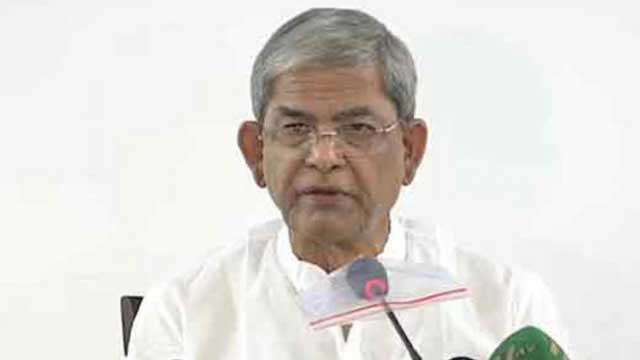Opposition Bangladesh Nationalist Party on Saturday alleged that the government had formulated two ‘repressive policies’ on digital and social media and OTT platforms to hush up the information about its corruption and misrule and suppress people’s voice.
The party also voiced deep worries that if the two policies were enforced, the freedom of expression of the country’s people and the online-based local and international media, journalists, and their privacy would be hampered and the human rights would be ignored.
Speaking at a press conference at BNP chairperson’s Gulshan office, BNP secretary general Mirza Fakhrul Islam Alamgir urged the government to stay away from adopting the policies and to repeal the Digital Security ACT for keeping intact the people’s freedom of expression and the freedom of the press and social and digital media.
‘There’s no freedom of speech now after regulating the freedom of press and people’s right to express through amending the ICT ACT and adding section 57 in 2013 and enacting the Digital Security Act in 2018. Two ministries have now taken initiatives to completely curb the leftover freedom expression through two policies,’ he said.
The two new policies are The Bangladesh Telecommunication Regulatory Commission Regulation for Digital, Social Media, and OTT Platforms, 2021 drafted by the Information and Communication Technology Ministry and Over the Top (OTT) Content-Based Service Delivery and Management and Advertising Policy 2021 by the Ministry of Information and Broadcasting.
‘We can simply say these suppressive policies have been formulated to prevent campaign against the Awami League government’s corruption, mismanagement, vote robbery, human rights violations, enforced disappearances and extrajudicial killings,’ Fakhrul said.
He said that the government would also use the policies to suppress people’s voices against the distortion of history of the Liberation War. ‘These two policies have also been made to fortify the Digital Security Act and reinforce the regulation.’
Replying to a question, the BNP leader said that their party would come up with action programmes if the government implements the two policies.
‘These two principles are not only contradictory to the right to freedom of speech and expression enshrined in Article 39 of the Constitution of Bangladesh, but also contrary to the UN’s the Universal Declaration of Human Rights (UDHR) and International Covenant on Civil and Political Rights (ICCPR),’ the BNP leader said.
Besides, he said, in the light Manila Principles on Intermediary Liability and the Santa Clara Principles on Transparency and Accountability in Content Moderation, the two principles were a clear violation of human rights.
‘The political purpose of formulating these policies is to perpetuate power in a one-party Baksal style by silencing people through establishing lies by hiding the truth,’ Fakhrul observed.
He also said that if the policies were enforced, it would put journalists, opposition politicians, human rights activists, and religiously and culturally vulnerable groups at greater risk. ‘It’ll also have a detrimental effect on human rights.’





